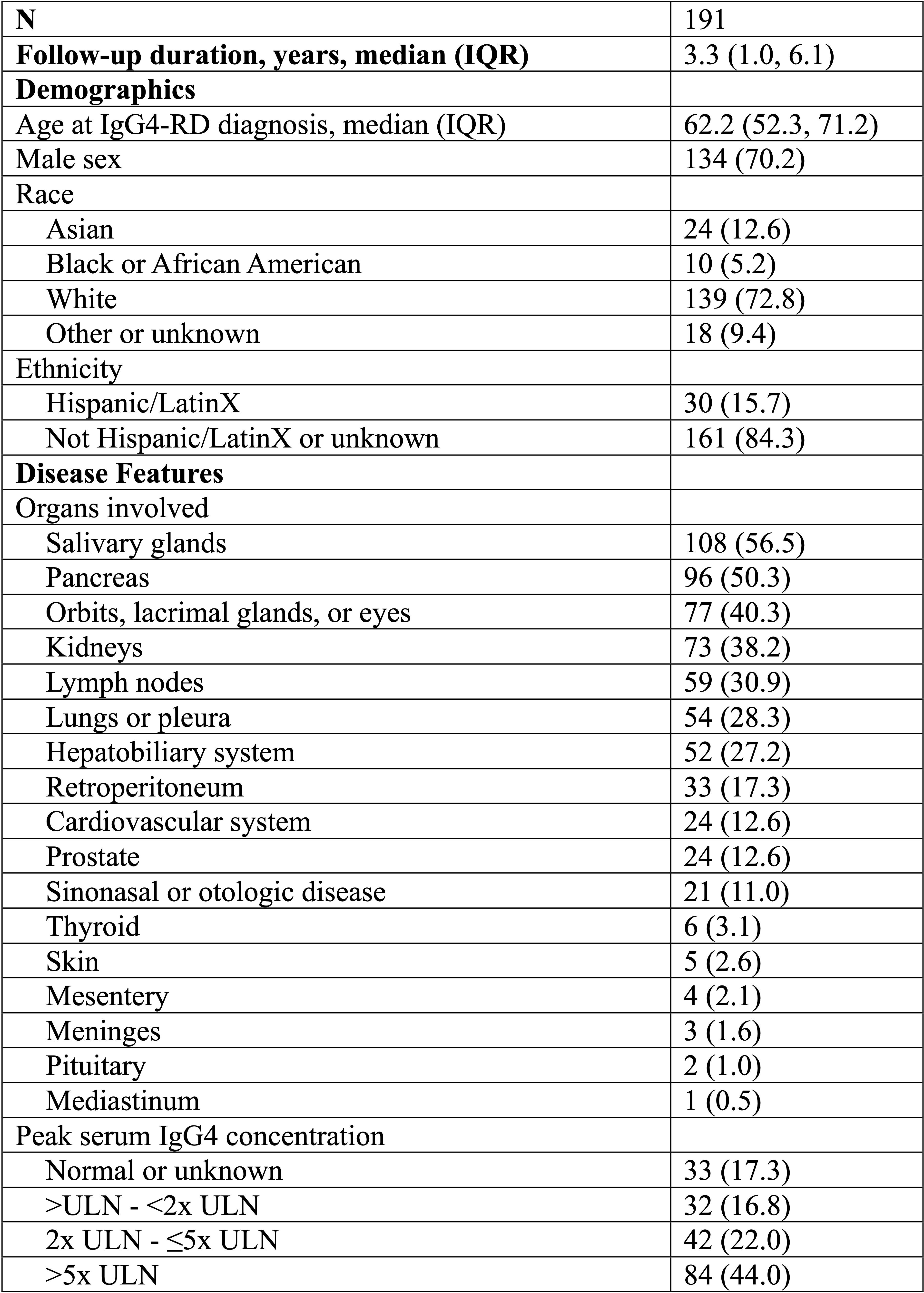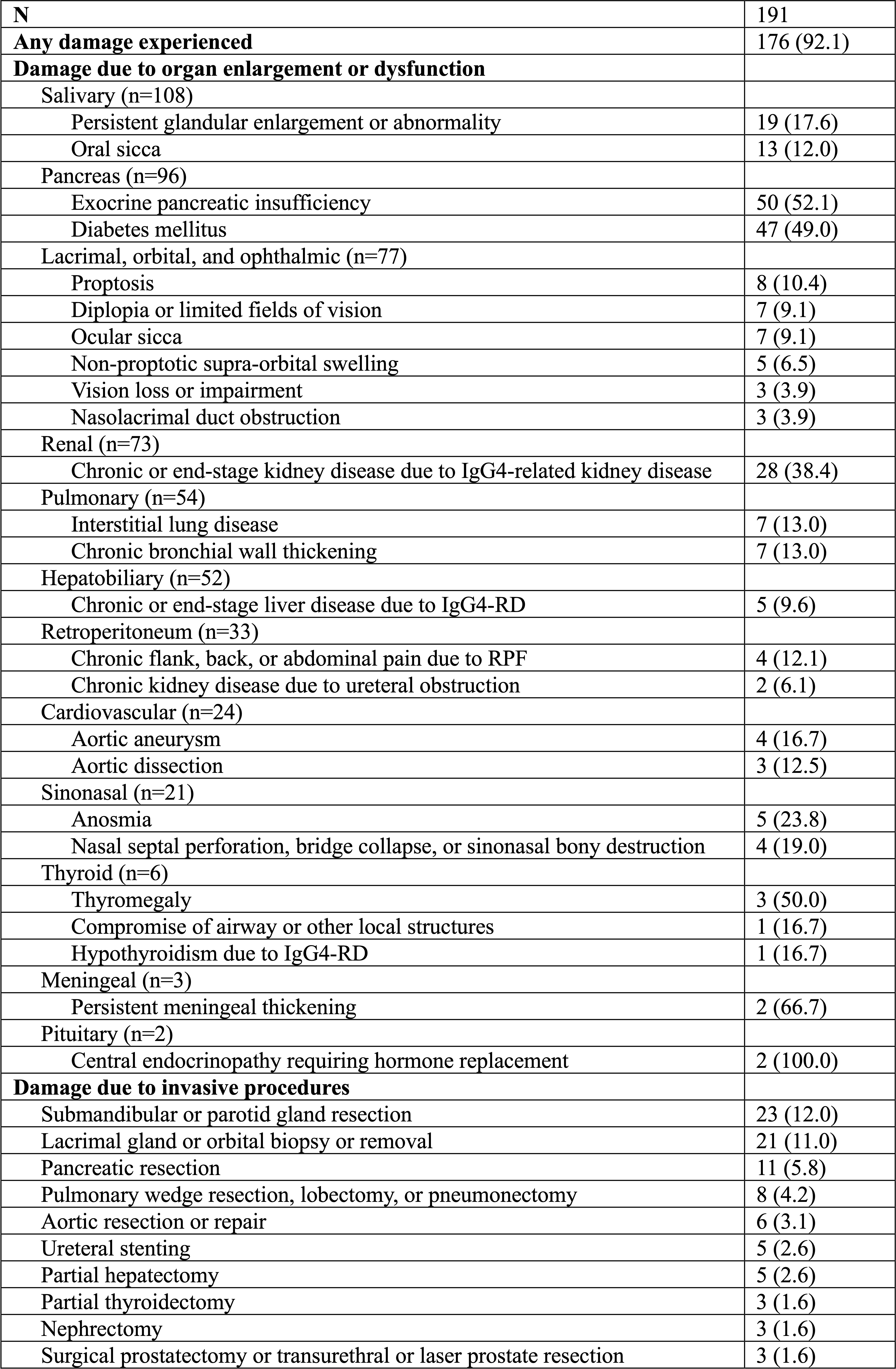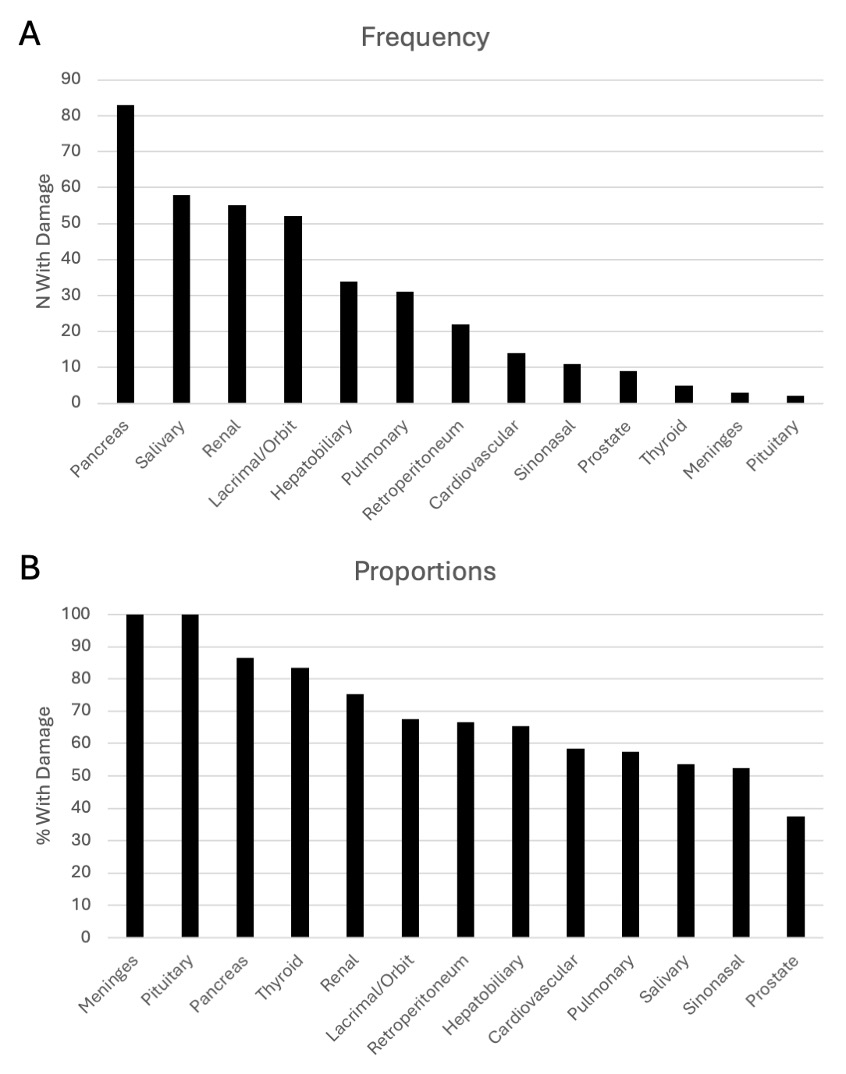Session Information
Session Type: Poster Session A
Session Time: 10:30AM-12:30PM
Background/Purpose: IgG4-related disease (IgG4-RD) is a systemic immune-mediated disease that can affect nearly any organ or anatomic site. Although the disease responds well to glucocorticoids and B cell depletion, little is known about the long-term damage that accrues in this condition. We aimed to identify the prevalence of damage due to disease effects and invasive procedures in a large cohort of patients with IgG4-RD.
Methods: We performed a cross-sectional study of a large prospective IgG4-RD registry. Patients were included if they fulfilled the 2019 ACR/EULAR Classification Criteria but excluded if there were inadequate data in the medical records to determine the presence or absence of damage. Data on demographics and disease features were collected prospectively. All medical records were reviewed by rheumatologist investigators with expertise in IgG4-RD to extract details regarding damage due to IgG4-RD that patients experienced at any point throughout the course of their illness. Disease features that persisted >3 months despite adequate treatment or were present during remission were defined as damage.
Results: Of 199 patients included in the medical records review, 8 had inadequate data to determine damage for the following reasons: only evaluation was done during active disease without damage evident at baseline (n=5), determination of damage required additional data that was not available for review (n=2), or inadequate follow-up to determine if manifestations were due to active disease or damage (n=1). The remaining 191 patients were included in this analysis. The majority (70%) of patients were male, and 73% were White. The most commonly involved organs or sites were the salivary glands (57%); pancreas (50%); orbits, lacrimal glands, or eyes (40%); and kidneys (38%) (Table 1).
The prevalence of various manifestations of damage is shown in Table 2. Among 191 patients, 176 (92%) had evidence of damage. Among the most common manifestations of damage observed were exocrine pancreatic insufficiency (50/96 [52%] among patients with pancreatic involvement), diabetes mellitus (47/96 [49%]), and chronic or end-stage kidney disease due to IgG4-related kidney disease (28/73 [38%] among patients with renal involvement). Iatrogenic damage associated with diagnostic or therapeutic procedures was also common: 23 (12%) underwent salivary gland resections, 21 (11%) lacrimal or orbital biopsies or resections via invasive surgical orbitotomies, 11 (6%) Whipple procedure or other pancreatic resections, and 8 (4%) pulmonary resections. The most commonly damaged organs were the pancreas (n=83), salivary glands (58), kidneys (55), and lacrimal glands or orbits (52) (Figure 1A). The most commonly damaged organs or sites among patients with involvement of those sites were the meninges (100%), pituitary gland (100%), pancreas (86%), thyroid (83%), and kidneys (75%) (Figure 1B).
Conclusion: Disease-associated damage and diagnostic or therapeutic invasive procedures are highly prevalent in IgG4-RD. Damage is especially frequent in internal organs that may be asymptomatic during active disease (e.g., pancreas and kidneys) and in organs typical of the fibrotic phenotype of IgG4-RD (e.g., meninges, pituitary, and thyroid).
To cite this abstract in AMA style:
Katz G, Wallace Z, Perugino C, McMahon G, Jha I, Fernandes A, Stone J. Damage Associated with Disease-Specific Effects and Diagnostic or Therapeutic Procedures Is Highly Prevalent in IgG4-Related Disease [abstract]. Arthritis Rheumatol. 2024; 76 (suppl 9). https://acrabstracts.org/abstract/damage-associated-with-disease-specific-effects-and-diagnostic-or-therapeutic-procedures-is-highly-prevalent-in-igg4-related-disease/. Accessed .« Back to ACR Convergence 2024
ACR Meeting Abstracts - https://acrabstracts.org/abstract/damage-associated-with-disease-specific-effects-and-diagnostic-or-therapeutic-procedures-is-highly-prevalent-in-igg4-related-disease/



